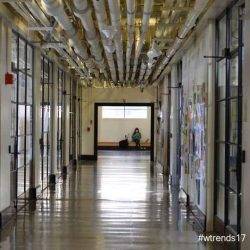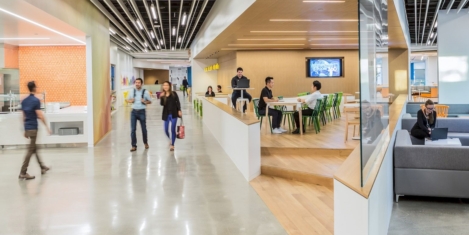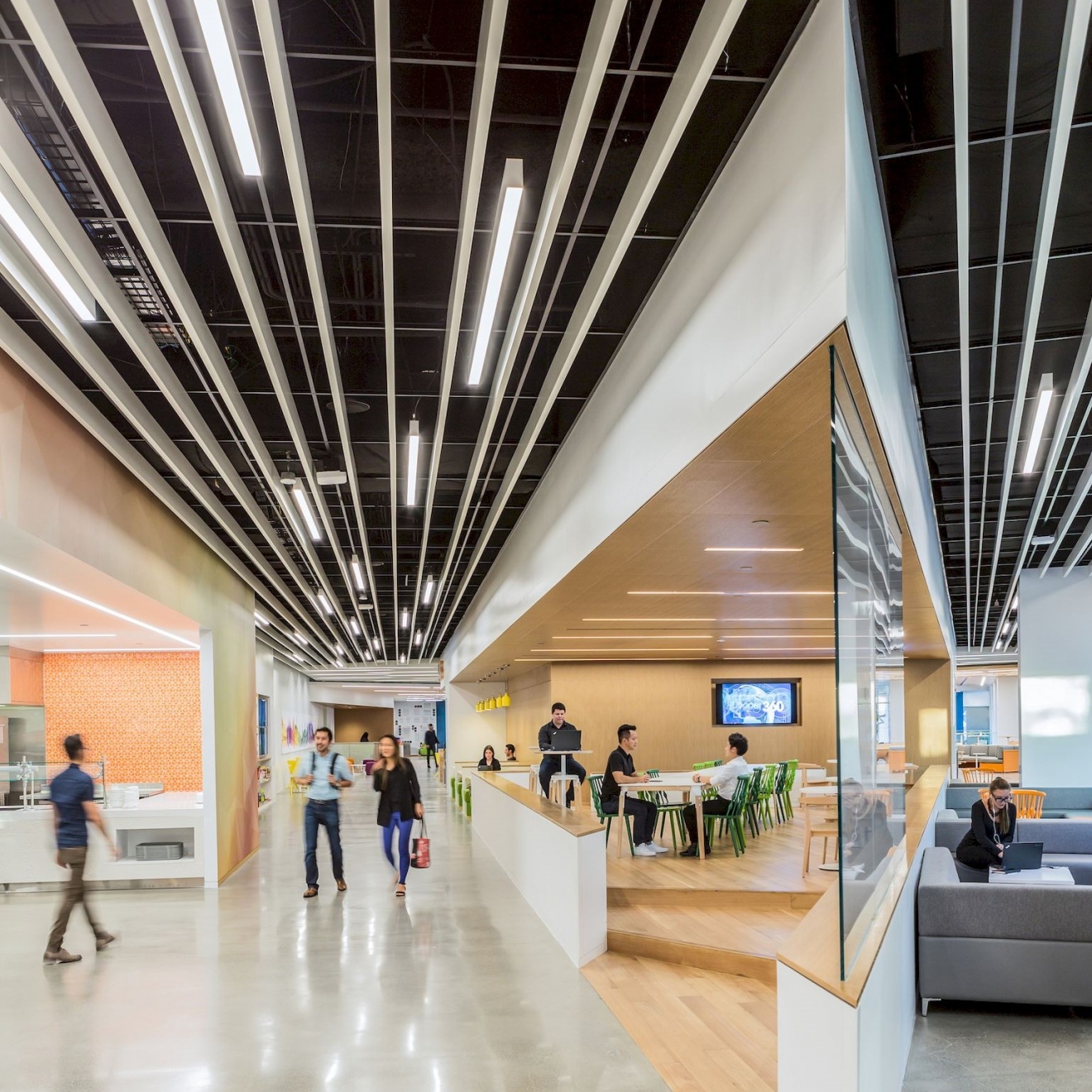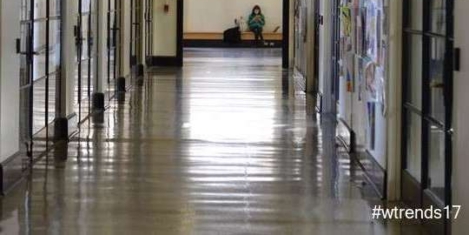October 30, 2019
Search Results for: future of work
May 31, 2019
Previous work experience poor predictor of future performance
by Mark Eltringham • News, Workplace
 One of the most commonly used and longstanding recruitment practices should be reconsidered according to new research from academics at Florida State University. Screening job applicants based on their prior work experience is often a mistake for employers because there appears to be little or no correlation between previous experience and future performance, according to a paper from Chad Van Iddekinge, FSU’s Bank of America Professor of Management and an expert on human resources management. (more…)
One of the most commonly used and longstanding recruitment practices should be reconsidered according to new research from academics at Florida State University. Screening job applicants based on their prior work experience is often a mistake for employers because there appears to be little or no correlation between previous experience and future performance, according to a paper from Chad Van Iddekinge, FSU’s Bank of America Professor of Management and an expert on human resources management. (more…)
September 12, 2018
Reinventing jobs for an automated future workplace
by Ravin Jesuthasan • AI, Comment, Technology
 Earlier this year, the European Commission announced it will invest €20 billion in Artificial Intelligence (AI) research and development by 2020 to boost the adoption of AI and robotics across multiple industries, which will have a significant impact on the way work across sectors gets done. Facing demographic deficits, Europe and Japan – and to an extent the US and China – are highly motivated to continue investment into AI, which is growing at an annual rate of 15 percent, and set to reach $1 trillion globally by 2050, according to Morgan Stanley.
Earlier this year, the European Commission announced it will invest €20 billion in Artificial Intelligence (AI) research and development by 2020 to boost the adoption of AI and robotics across multiple industries, which will have a significant impact on the way work across sectors gets done. Facing demographic deficits, Europe and Japan – and to an extent the US and China – are highly motivated to continue investment into AI, which is growing at an annual rate of 15 percent, and set to reach $1 trillion globally by 2050, according to Morgan Stanley.
September 6, 2018
Leading a hybrid future workforce of robots, episodic employees and gig leaders
by Mark Eltringham • Flexible working, News, Technology
 Visions of hybrid workforces, episodic employees, gig leadership and acceptable failure have been unearthed in a new study, ‘Work 2028: trends, dilemmas and choices’, revealing business and society leaders’ projections for the fourth industrial revolution. The project was led by Professor Bernd Vogel at Henley Business School and run in collaboration with Deutsche Telekom and Detecon Consulting, who commissioned Henley to carry out the survey. The research involved interviews with over 50 influential leaders from across a variety of sectors and countries including senior figures from Amazon and Unilever to look at the challenges facing organisations and their future workforce.
Visions of hybrid workforces, episodic employees, gig leadership and acceptable failure have been unearthed in a new study, ‘Work 2028: trends, dilemmas and choices’, revealing business and society leaders’ projections for the fourth industrial revolution. The project was led by Professor Bernd Vogel at Henley Business School and run in collaboration with Deutsche Telekom and Detecon Consulting, who commissioned Henley to carry out the survey. The research involved interviews with over 50 influential leaders from across a variety of sectors and countries including senior figures from Amazon and Unilever to look at the challenges facing organisations and their future workforce.
June 21, 2018
The future of the workplace emerges from the mists at Neocon
by John Sacks • Features, Furniture, Workplace design
 Chicago is one of the world’s great cities. Its dramatic lake and river setting, its magnificent architecture and its raw energy inspire the locals and businesses to achieve great things. People work and play very hard. Competition is fierce both in business as in the way the people relate to each other, and befits a city heavily influenced by waves of immigration down the ages. Apart from somewhat overly aggressive and noisy driving, if there is friction, you don’t sense it and it isn’t obvious. Most locals seem genuinely open and friendly, including to strangers, and happy to get on with their lives without troubling others. Perhaps they’re all being buoyed up by the great street music which is everywhere.
Chicago is one of the world’s great cities. Its dramatic lake and river setting, its magnificent architecture and its raw energy inspire the locals and businesses to achieve great things. People work and play very hard. Competition is fierce both in business as in the way the people relate to each other, and befits a city heavily influenced by waves of immigration down the ages. Apart from somewhat overly aggressive and noisy driving, if there is friction, you don’t sense it and it isn’t obvious. Most locals seem genuinely open and friendly, including to strangers, and happy to get on with their lives without troubling others. Perhaps they’re all being buoyed up by the great street music which is everywhere.
May 1, 2018
No surprises in new report on future workplace trends
by Mark Eltringham • Comment, Flexible working, Technology, Wellbeing, Workplace design
 The latest Global Workplace Trends report from Sodexo focuses on the ‘workplace experience’ and how it affects levels of engagement, wellbeing and corporate performance. It’s an undemanding study that sets out seven trends covering familiar themes in a familiar way, even though the authors claim it offers ‘fresh insights’. As well as the idea of ‘experience’, it touches on ideas about the intersections of digital and physical space and the implications for people and organisations as well as the workplace professions. It uses the standard vocabulary, various buzzwords and the usual presuppositions to look at the impact of Millennials, AI, the sharing economy and so on. The visuals are the usual parade of smiling, diverse – but no unattractive, disabled and old – hipsters sharing screens and being creative in sun-dappled interiors. Sauce it with some virtue signals and it’s job done.
The latest Global Workplace Trends report from Sodexo focuses on the ‘workplace experience’ and how it affects levels of engagement, wellbeing and corporate performance. It’s an undemanding study that sets out seven trends covering familiar themes in a familiar way, even though the authors claim it offers ‘fresh insights’. As well as the idea of ‘experience’, it touches on ideas about the intersections of digital and physical space and the implications for people and organisations as well as the workplace professions. It uses the standard vocabulary, various buzzwords and the usual presuppositions to look at the impact of Millennials, AI, the sharing economy and so on. The visuals are the usual parade of smiling, diverse – but no unattractive, disabled and old – hipsters sharing screens and being creative in sun-dappled interiors. Sauce it with some virtue signals and it’s job done.
March 15, 2018
Future cityscape will feature driverless transport, smart buildings and co-working says JLL
by Sara Bean • Cities, Facilities management, News, Property

Wi-Fi trees, driverless transport, smart buildings and co-working will be commonplace in 2040 predicts a report (registration required) published by JLL that outlines the ideal cityscape by 2040. The report incorporates a transformation framework aimed at enabling real estate businesses to adapt and thrive in a future city. According to the report, “The Transformation Framework”, the ideal cityscape in 2040 will have adapted to the trends driving the real estate sector over the next 20 years and will include co-working and living space, smart and healthy buildings, Wi-Fi trees, reverse vending machines, driverless transport and multi-generational housing as standard. To create the future cityscape, JLL asked some of the UK’s leading real-estate owners, occupiers, developers and investors what they thought the ideal city would look like in 2040, while taking into account the seven trends that JLL predict will influence real estate and infrastructure globally over the next two decades. These trends included tech innovation, urbanisation, land & resource scarcity, the low carbon economy, demographic & workplace change, health & wellness and transparency & social value.
February 22, 2018
Report calls for better understanding of the future risks of tech to workplace wellbeing
by Sara Bean • AI, News, Technology, Wellbeing, Workplace
 In a workplace dominated by insecurity, gig work and intelligent machines we need to improve our understanding of their potential impact on health, safety and wellbeing claims a new report. Future risk: Impact of work on employee health, safety and wellbeing, commissioned by the British Safety Council from RobertsonCooper researchers argues that the public debate on the future of work has centred so far on the likely shape of the workplace and its implications for both employers and employees. There has been far less focus on what this might mean for workers’ health, safety and wellbeing, with discussions centring on the present, rather than preparing us for the challenges of the future. Yet, the impact of automation on the workplace will be more fundamental than is commonly understood, with 11 million jobs predicted to be lost in the next 20 years in the UK. As we are already seeing with some ‘gig’ working, it may undermine such basic human needs as social identity, economic security and a sense of belonging. The report reviews the existing literature on this subject and makes a number of recommendations.
In a workplace dominated by insecurity, gig work and intelligent machines we need to improve our understanding of their potential impact on health, safety and wellbeing claims a new report. Future risk: Impact of work on employee health, safety and wellbeing, commissioned by the British Safety Council from RobertsonCooper researchers argues that the public debate on the future of work has centred so far on the likely shape of the workplace and its implications for both employers and employees. There has been far less focus on what this might mean for workers’ health, safety and wellbeing, with discussions centring on the present, rather than preparing us for the challenges of the future. Yet, the impact of automation on the workplace will be more fundamental than is commonly understood, with 11 million jobs predicted to be lost in the next 20 years in the UK. As we are already seeing with some ‘gig’ working, it may undermine such basic human needs as social identity, economic security and a sense of belonging. The report reviews the existing literature on this subject and makes a number of recommendations.
February 19, 2018
The key to tackling future economic challenges is to harness the ageing workforce
by Mark Eltringham • News, Workplace
 Providing American seniors with better work incentives and opportunities will be crucial for the United States to meet the challenges of its rapidly ageing population. By 2028, more than one in five Americans will be aged 65 and over, up from fewer than one in six today, according to a new OECD report. Working Better with Age and Fighting Unequal Ageing in the United States finds that employment rates among older workers in the United States are above the average across OECD countries. In 2016, 62 percent of all 55-64 year olds were employed compared with the OECD average of 59 percent. However, employment rates are much lower among the ageing workforce. Early retirement is prevalent among workers from vulnerable socio-economic backgrounds, often occurring as soon as Social Security benefits become available at age 62. Poverty among seniors is a challenge: more than 20 percent of peopled aged 65 and over have incomes below the relative poverty line – defined as half of the median disposable household income – compared with the OECD average of less than 13 percent.
Providing American seniors with better work incentives and opportunities will be crucial for the United States to meet the challenges of its rapidly ageing population. By 2028, more than one in five Americans will be aged 65 and over, up from fewer than one in six today, according to a new OECD report. Working Better with Age and Fighting Unequal Ageing in the United States finds that employment rates among older workers in the United States are above the average across OECD countries. In 2016, 62 percent of all 55-64 year olds were employed compared with the OECD average of 59 percent. However, employment rates are much lower among the ageing workforce. Early retirement is prevalent among workers from vulnerable socio-economic backgrounds, often occurring as soon as Social Security benefits become available at age 62. Poverty among seniors is a challenge: more than 20 percent of peopled aged 65 and over have incomes below the relative poverty line – defined as half of the median disposable household income – compared with the OECD average of less than 13 percent.
October 19, 2017
Future office and changing business of work debated at Workplace Trends
by Sara Bean • Comment, Coworking, Facilities management, Technology, Wellbeing, Workplace design
 Those working within the built environment are already in the change business, was the view of Neil Usher of workessence in his presentation at the Workplace Trends Conference which was held in London this week. This was apt, as the changing business of work’ was the theme of the conference. It’s a pretty common topic these days of course but a strong line up of speakers ensured some interesting discussions; which included the rise of the gig economy, the variety of ways people from different cultures perceive workplace design and predictions on the workplaces of the future. On the current design and fit out of the office, Usher was clear; that creating a fantastic workplace is independent of culture, location, the work style you want to create and the sector in which you’re working. His other mantra was that you can still work in an awful workplace with great technology, but not the other way around, which is why there is no excuse for not getting your technology right.
Those working within the built environment are already in the change business, was the view of Neil Usher of workessence in his presentation at the Workplace Trends Conference which was held in London this week. This was apt, as the changing business of work’ was the theme of the conference. It’s a pretty common topic these days of course but a strong line up of speakers ensured some interesting discussions; which included the rise of the gig economy, the variety of ways people from different cultures perceive workplace design and predictions on the workplaces of the future. On the current design and fit out of the office, Usher was clear; that creating a fantastic workplace is independent of culture, location, the work style you want to create and the sector in which you’re working. His other mantra was that you can still work in an awful workplace with great technology, but not the other way around, which is why there is no excuse for not getting your technology right.
February 7, 2017
Brexit impact on UK’s future workforce size could undermine productivity 0
by Sara Bean • Knowledge, Legal news, News, Technology, Workplace
 With the UK facing at best, very slow growth, or even shrinkage, of the working population, future changes to migration levels into the UK due to Brexit could exacerbate the financial stresses and strains caused by the UK’s aging workforce. This is according to the Mercer Workforce Monitor™ which claims that companies will need to invest heavily in automation, sectors of society historically under-represented in the workforce and look at ways of increasing productivity. According to the analysis, since 2013, the levels of EU and non-EU born immigration into the UK workforce has filled a gap left by the aging of the nation’s UK-born workforce which sees more in this group leave the workforce – through retirement, emigration or death – than enter it. National growth is closely linked to workforce growth; so reducing its future size would create major headwinds for the UK economy and since another 3.4 million people will reach the age of 65 in 2030; unless the UK decides to make drastic changes to the funding of pensions, health and social care, this smaller working population will be required to proportionally spend more of their income to care for their older citizens.
With the UK facing at best, very slow growth, or even shrinkage, of the working population, future changes to migration levels into the UK due to Brexit could exacerbate the financial stresses and strains caused by the UK’s aging workforce. This is according to the Mercer Workforce Monitor™ which claims that companies will need to invest heavily in automation, sectors of society historically under-represented in the workforce and look at ways of increasing productivity. According to the analysis, since 2013, the levels of EU and non-EU born immigration into the UK workforce has filled a gap left by the aging of the nation’s UK-born workforce which sees more in this group leave the workforce – through retirement, emigration or death – than enter it. National growth is closely linked to workforce growth; so reducing its future size would create major headwinds for the UK economy and since another 3.4 million people will reach the age of 65 in 2030; unless the UK decides to make drastic changes to the funding of pensions, health and social care, this smaller working population will be required to proportionally spend more of their income to care for their older citizens.




























January 9, 2019
Digital transformation and an uncharted future for workplace design in 2019
by Cherie Johnson and Julie Yonehara • Comment, Technology, Workplace design